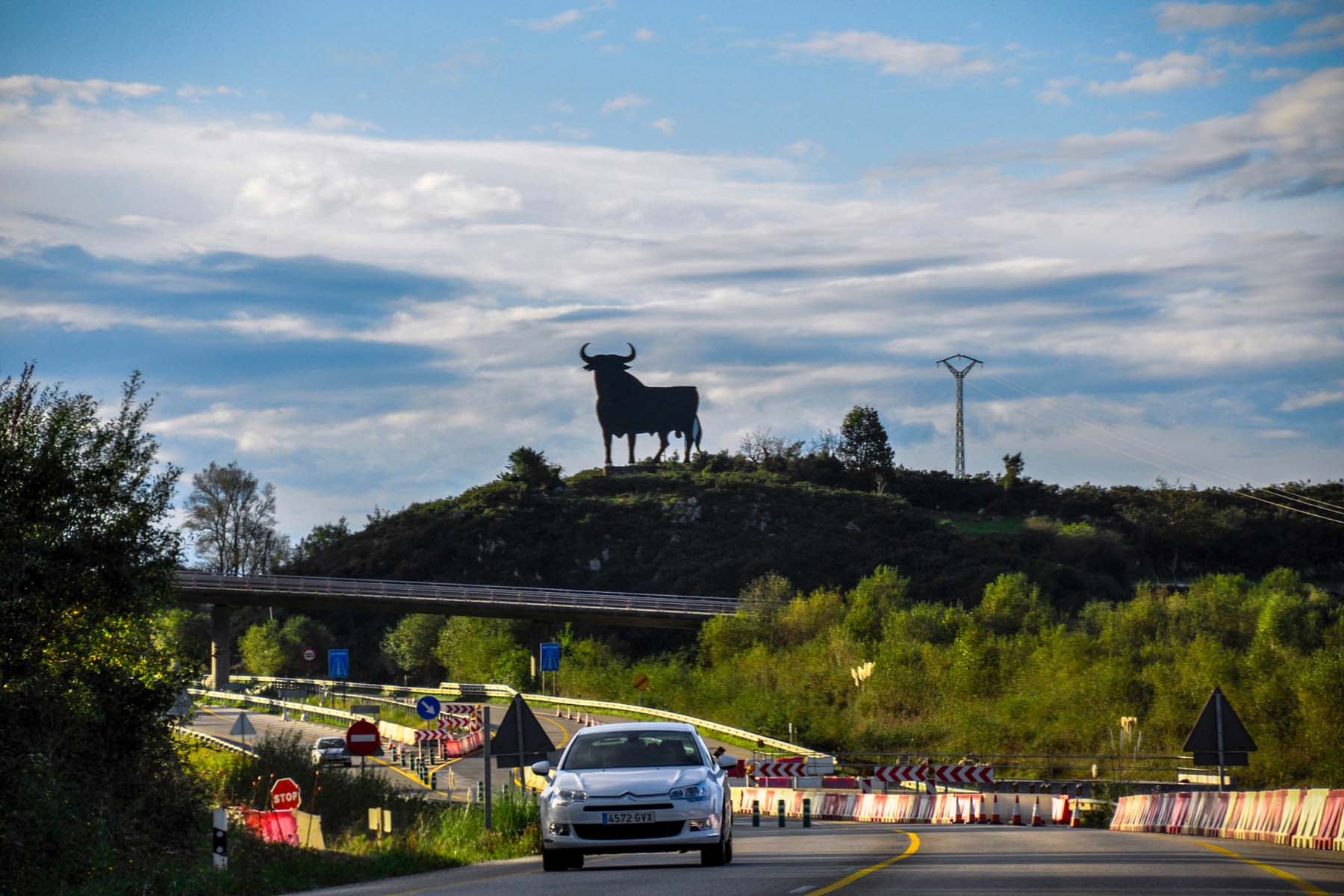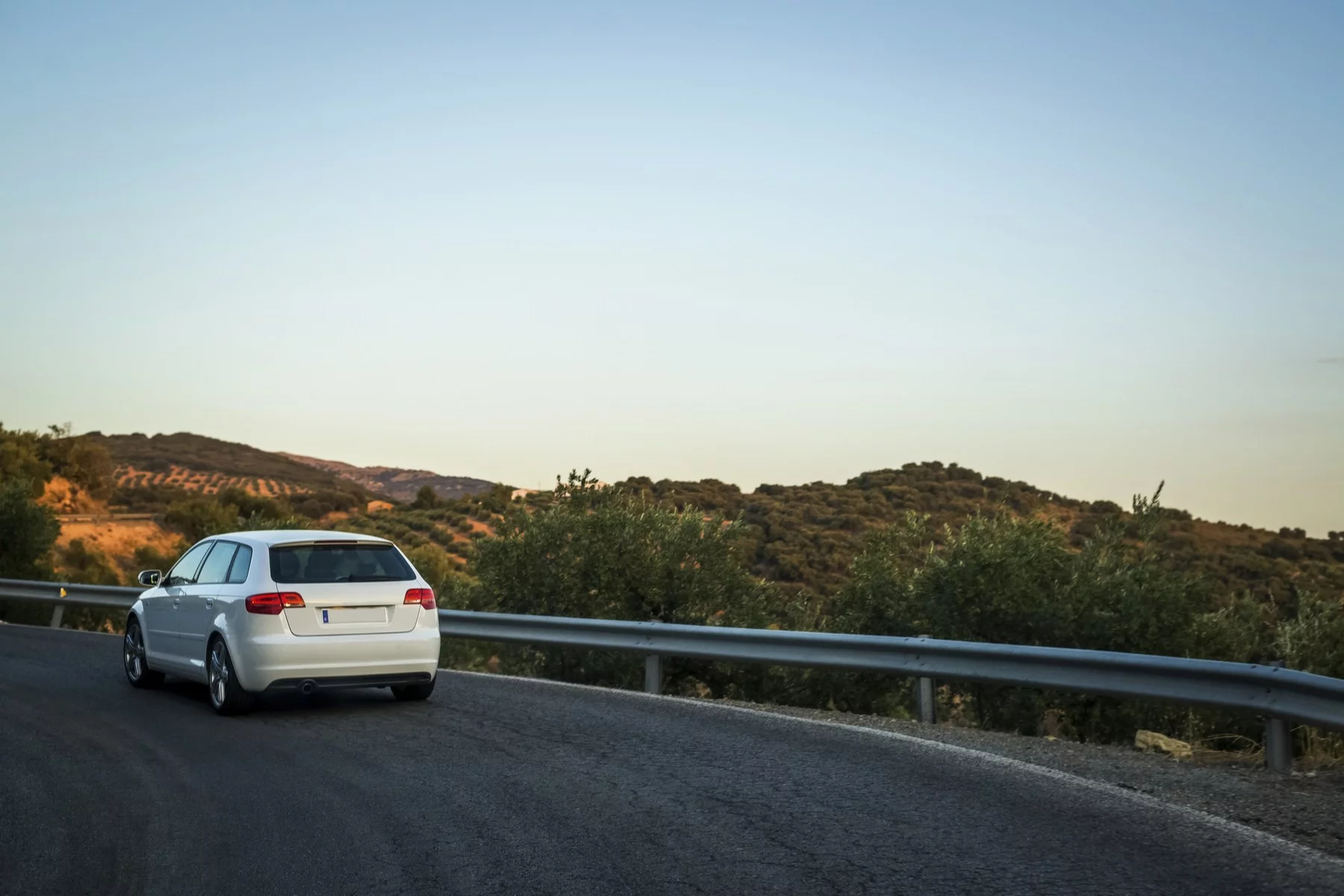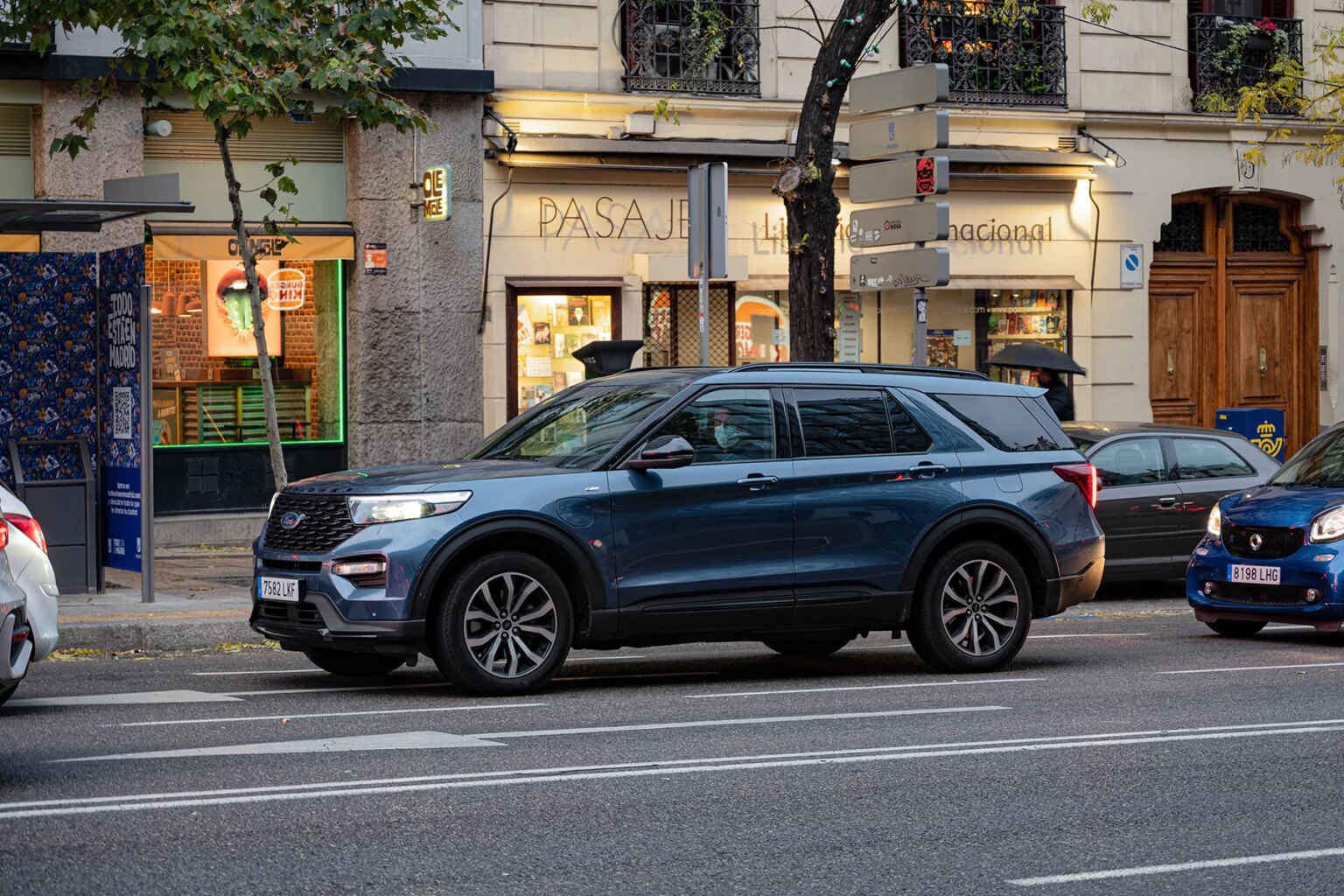Spain is a nation of car lovers, and four wheels are often the best way to see some of the great sights this beautiful country has to offer. Indeed, you might be surprised to discover that the country is the third biggest car manufacturer in Europe. Despite this, becoming a car owner yourself can be bureaucratic.
Some of the requirements for registering a new car and paying tax can seem daunting to a new arrival unfamiliar with the system. Learn how to buy a vehicle in Spain without applying the brakes by reading the following sections:
- Buying a car in Spain
- Who can buy a car in Spain
- Buying a new car in Spain
- Where to buy a new car in Spain
- Buying a used car in Spain
- Where to buy a used car in Spain
- Car registration and other paperwork in Spain
- Car costs in Spain
- Importing a car in Spain
- Selling a car in Spain
- Equipment your car needs to have in Spain
- Useful resources
Linea Directa
Getting behind the wheel in Spain? Speak to the insurance experts at Linea Directa and get yourself covered today. Whether you drive a city-center runaround or you’re planning a road trip across the beautiful Spanish countryside, choose the right premium for you and your driving needs with Linea Directa today.
Buying a car in Spain
Car ownership in Spain is high. The vast majority of employed adults own cars. Figures show that, in 2022, there were just over 25 million passenger cars (PDF) in Spain, and approximately 27.3 million people (in Spanish) have a driver’s license.
If you live in some of Spain’s bigger cities, such as Barcelona and Madrid, you’ll be able to easily get around using the local public transport systems. However, in other parts of the country, you might find it hard to get around without a car. The good news is that it’s not necessarily difficult to buy a car in Spain. Moreover, new startups are making the process easier and more convenient, especially for those in the used-car market.

Nevertheless, car salespeople don’t tend to have a great reputation and you might find buying a car difficult if your Spanish is minimal. Generally speaking, it’s less risky and more straightforward buying from a car dealership than from a private citizen. In both cases, however, it’s advisable to do your research and consider your needs before buying a car.
Who can buy a car in Spain
The legal driving age in Spain is 18. You can drive with a foreign driver’s license for six months as long as you are at least 18. After that, you will need to get a Spanish driver’s license. In order to buy a car in Spain, you don’t need to be a resident but you will need to prove that you are living in the country. If you’re non-resident, either from the EU or non-EU, the following documents will be necessary:
- Your NIE number (Número de Identidad de Extranjero), a unique tax identification number used to track all financial and legal activites.
- Your passport.
- Proof of address (padrón) including one of the following: house deeds; rental contract for a year (escrituras); or your proof of residence. (Certificado de Empadronamiente), no more than three months old and available from the local town hall (ayuntamiento).
- Three payslips (nóminas) if you are going through a dealer and are financing the car, or something that proves your income.
You can also use your residency card (residencia) instead of providing an NIE number and proof of address. If you’ve moved since obtaining your residency, you will need to provide proof of address as listed above.
You may not need, or be asked, for all these documents before buying a car, but it’s better to err on the side of caution. Always make photocopies or take photographs of any documents.
Buying a new car in Spain
Buying a car is an expensive business. Spain is no different. The average cost of buying a new car in 2020 was about €20,000 and the price continues to rise. To add to this, a new car will depreciate substantially in its first year. Before driving off into the sunset, you will need to consider ongoing costs, such as insurance, tax, petrol, and emissions tests.
If you are living in a big city or a place with good public transportation, it might be better to rely on buses and trains, or live sustainably and invest in a good bike. There are new car-sharing services too. That said, Spain is a big place and it may not be easy or practical to travel long distances.
Advantages to buying a new car
With that in mind, there are some advantages to buying a new car. First, the dealership (consecionario) will handle the vehicle registration paperwork with your closest Provincial Traffic Authority (Jefatura Provincial de Tráfico), saving you considerable time. Second, you will get a warranty that lasts up to a year, giving you extra peace of mind. Third, you will be able to finance the car if you need to and pay it off in installments.

In some cases, the dealer may offer incentives, or waive the registration fee if you pay in cash. Be prepared to negotiate. If you’re a non-resident you do not need to pay the 21% sales tax (VAT) and registration tax.
Before agreeing to any deal, ask to see:
- The Log Book (Permiso de Circulación). It should show that the vehicle registration number matches the vehicle’s registration document. It will also include basic information, such as a number plate, make and model.
- A transfer of ownership (transferencia).
- The IVTM (Impuesto Sobre Vehículos de Tracción Mecánica), also known as road tax or car tax, paid in full for the current financial year.
Cars under four years old don’t need an ITV (Inspección Técnica de Vehículos). It ensures that the car is roadworthy and is the same as an MOT in the UK.
Where to buy a new car in Spain
Car dealerships in Spain
There are thousands of car dealerships (consecionarios) in Spain, dotted all over the country. Before walking into any car dealership, it would be wise to be prepared. Make sure to do your research, know your budget, and roughly how much your preferred car has sold for elsewhere. You can drive a harder bargain if you know this. You can use a site like Carnovo to research new car prices.
Manufacturers with dealerships in Spain include:
- Audi España
- BMW España
- Fiat España
- Mercedes Benz
- Nissan España
- Renault España
- Seat España
- Toyota España
- Volkswagen España

Car brokers in Spain
Buying a car can be a time-consuming process. You can take some of the strain out of the process by using a car broker (agente comercial de coches). They will usually work for a client in a car dealership. You tell them what you’re looking for and your budget and they will try to find you the best car available in exchange for a fee.
One advantage of using a broker is that they will file all the paperwork entailed in buying a car, including tax and insurance. Some will help with the process of importing a car to Spain.
El Economista has a directory of commercial agents, allowing you to refine the search for those specializing in cars.
Buying a car in Spain online
It’s increasingly common for people to buy cars online and there are specialist platforms catering to this shift in our shopping habits. Two of the most popular sites for used cars are Clicars and Webycar. Both of these sites allow you to buy and sell online and they include cars that are nearly new. Motor.es allows you to search for new cars in your budget, or by manufacturer.
One advantage of buying through a site like these is that they will take care of the transfer of the vehicle and the paperwork for a small fee. A professional will also certify the car has been tested and is roadworthy, and you’ll get a warranty. Overall, this makes it less risky than buying directly from a private individual.
Buying a used car in Spain
In Spain, people tend to buy new cars and keep them for longer periods of time, driving up the cost of the second-hand car market. It can work out more expensive than you might think, with the average price hovering around €11,000.
Nevertheless, it’s cheaper to buy a used car than a new one and you might be able to strike a bargain with someone privately. However, you will need to handle all the paperwork involved in the sale yourself and you will not have a warranty in case something goes wrong.

Sellers have been known to hide problems from potential buyers, including altering the odometer or not disclosing previous problems or accidents. As a result, it’s not uncommon to take a car to a mechanic for a full inspection (toda prueba) before purchase.
You could also request a report (informe extendido del vehículo) from the Directorate-General for Traffic (Dirección General de Tráfico), Spain’s traffic authority. It will tell you the car’s history. You should note that you could be liable for outstanding loans and unpaid tickets.
You can buy a used car from a dealership, a garage, online, or through a private seller. Some towns or cities will have yearly used car fairs. Barcelona, for example, hosts a popular one called Ocasión.
What you need for buying a used car
- If it’s a private sale, ask the seller for ID and take photocopies or photographs of it. If they’re a Spanish citizen, they should have a DNI (documento de identidad).
- A contract of sale (contrato de compravente).
- The Log Book (Permiso de Circulación). Make sure the name the car is registered to matches the person’s ID.
- The transfer of ownership (transferencia) signed by both of you.
- The IVTM (Impuesto Sobre Vehículos de Tracción Mecánica), also known as road tax or car tax, has been paid in full for the current financial year. You can also use this calculator to figure out how much it will cost you.
- The ITV card or receipt (Inspección Técnica de Vehículos) for any car over four years old. It will tell you if the car is roadworthy.
Buying a car in Spain from a private owner
It’s quite common for people to buy from a private owner, especially because you can often pick up a better bargain than you can through a car dealership.
You can start your search at your local newsagent (quiosco). Specialist magazines such as Autopista, Autofacíl, and Coche Actual are popular and most have online versions.
There are plenty of online platforms too. Ooyyo, for example, allows you to browse through thousands of ads and then contact the seller directly. Popular sites for buying a second-hand car include AutoScout24.es Autocacíon.com, and Autobild.es. Furthermore, Coches.com has this useful tool for checking the value of a used car.

It’s wise to check that the car hasn’t been involved in major accidents; that its service history matches what’s on the clock; and that servicing has been carried out by an authorized dealer.
In the case of a private sale, you and the seller are responsible for filing all the paperwork that transfers the car to your name (transferencia) at the Provincial Traffic Authority (Jefatura Provincial de Tráfico). Don’t give the seller any money until this transfer is complete. There is a small fee for the transfer, about €50 to €70, and it’s best to take cash with you.
You will also need to pay a vehicle transfer tax (Impuesto de Transmisiones Patrimoniales) that is paid to the Spanish Tax Agency (Agencia Tributaria). This tax is based on the value of the car, usually between 4% to 8%, and varies from region to region.
Where to buy a used car in Spain
Car dealerships in Spain
The main car dealerships in Spain will have a selection of used cars for sale. In addition to that, you can go through specialists in selling used cars, or online marketplaces. Some of these include:
Car registration and other paperwork in Spain
Spain has a reputation for being bureaucratic and fond of paperwork. What you pay and the steps you take will vary depending on where you bought the car, if it’s new or used, and if it was imported.
What residents of Spain need
- Your ID, passport or NIE card.
- The ITV card (Inspección Técnica de Vehículos), proving the car is roadworthy. It should also show the sale of the vehicle.
- Proof that you’ve paid the IVTM (Impuesto Sobre Vehículos de Tracción Mecánica), equivalent to road tax at the local town hall (ayuntamiento). It’s also called Impuesto de Circulación.
- Proof that you’ve paid the appropriate registration tax for your region, based on the model and year of your car, and it’s emissions. This is done at the Provincial Traffic Authority (Jefatura Provincial de Tráfico). You will need form 576 (Modelo 576).

In the event it’s a used car, you will also need to have the contract between you and the seller (contrato de compraventa). You need to take the paperwork to the DGT (Dirección General de Tráfico) in person or fill out a form available on their website (in Spanish) and include all the documents and fees.
Costs and timeline
The fee to register a vehicle can change from one year to the next. The cost is about €100 euros and €30 for a motorbike.
It should not take more than three months to get your ownership documents or license plate. If it does, your application has not been successful.
Some expats use gestors, professional agents who will file the vehicle registration documents for a fee. You can search for a reputable gestor on the Registro de Gestores Administrativos.
Be sure to stay on top of any changes to this process by checking the DGT website for the steps pertaining to you.
Car costs in Spain
The cost of owning a car in Spain can add up. You need to pay road tax yearly, either at your local town hall (ayuntamiento) or by arranging a direct debit with your bank. The price varies depending on the type of car you own, what fuel it uses, and where it’s registered. The average is around €40, more if it’s diesel. You can use this handy calculator to do an estimate.
If your vehicle is four years old, your car must have an ITV inspection (to check it’s roadworthy and passed its emissions test) every two years. At 10 years old, the inspection must be done annually. Costs will vary by location, type of vehicle, size, and fuel type. Expect it to cost around €40 to €50 and go up from there.
Before having an ITV test, you will need to have the results of any previous road tests (ficha technica); your registration document (Permiso de Circulación); proof of car insurance; and your ID.
Fuel, electric charging, and insurance
Like in many other parts of the world, petrol prices have risen and continue to rise. As you might expect, the cost of fuel in Spain varies between areas and fuel stations and is subject to fluctuation. As of February 2022, it’s around €1.50 per liter.
For those who own an electric car, Spain is one of the most expensive places to charge vehicles. Of leading global economies, Spain comes out almost the most expensive, costing about €22 per charge. This is ahead of countries traditionally thought to be pricier including the UK and Germany.
Anyone caught driving without insurance by Spanish police can be fined up to €3,000. Insurance is applied to the car, and you can add other drivers to your policy. The cost of insurance will depend on the type of policy you buy. The minimum in Spain is third-party liability insurance. Fully comprehensive policies are likely to be €400 a year or more, depending on your policy provider.
For more information, visit our comprehensive look at car insurance in Spain.
Importing a car in Spain
While some expats may be driving foreign-registered cars in Spain, it’s highly advisable that you re-register your car in Spain and get the license plates switched over to Spanish ones. Otherwise, you can be stopped and hit with a significant fine.
Remember, you can only drive a car in Spain for up to six months if you’re not a resident. After that time, you are automatically considered a tax resident, and tax would be due on any foreign-imported vehicles.

Some people decide it’s easier to simply buy a new or used car in Spain, rather than import one from another country and re-register it. If you are thinking of importing a car, it’s likely to cost between €300 to €1,000. You will need to have these documents ready: your ID, the vehicle’s sale contract, and a technical report (like MOT). All foreign documents need to be officially translated to Spanish.
Main steps for importing
- Arrange for your transportation into Spain and that of your car’s.
- Order a Certificate of Conformity (COC), allowing you to register the vehicle.
- Arrange for an ITV inspection at a licensed agency. This is obligatory, even if the car recently passed one.
- Pay import duty (Impuesto Especial sobre Determinados Medios Transporte) on the value of your car at the Tax Agency (Agencia Tributaria). You will need this form (Modelo 576). If you register an EU car within 30 days, you are exempt from paying this tax. If you are importing a car from outside the EU, you will need to pay the import tax before the car is released.
- Pay road tax at the local town hall (ayuntamiento).
- Pay registration tax at the Provincial Traffic Authority (Jefatura Provincial de Tráfico).
- Make an appointment at the DGT to file for registration and get your license plates.
As the process is laborious and complicated, some people opt to use a gestor instead of doing it themselves. More information on importing a car can be found through the DGT and will vary if it’s inside or outside the EU. You can check tax implications through the Spanish Tax Agency (Agencia Tributaria).
Selling a car in Spain
You can sell a used car in Spain through dealerships, using online platforms or privately. However, you’ll need to make sure you follow regulations and provide the right paperwork to avoid getting into trouble. The easiest way to do this is to sell through a dealership or online car sales specialist as they will either take care of this for you, or at least fully explain what to do. The drawback to this, however, is that it’s more expensive.
You will need to provide:
- Existing registration documents as proof of ownership, plus the transfer of ownership form (Solicitud de Transmisión de Vehículos).
- ITV certificate if the car is over four years old.
- Receipts to prove that you have paid up-to-date road tax.
- Your NIE number (you should also ask for the buyer’s NIE number to show that they can legally buy your car)
It’s also a good idea to use a purchase contract or sales agreement containing the car details and terms of agreement. See here for a template (in Spanish).
There are a number of online platforms where you can sell used cars in Spain, such as AutosDirect, Vibbo (in Spanish) and We Buy Your Car.
Equipment your car needs to have in Spain
- Your driver’s license
- ITV card (showing that it has passed its MOT or roadworthiness)
- Permiso de circulación (log book)
- Your car insurance policy
- European accident agreement form (in the event of an accident)
- Two warning triangles (in the event of breaking down)
- A fluorescent jacket for each person traveling in the car
- A booster or child seat for children up to the age of 12 (height and weight restrictions apply)
- A spare tire and the tools needed to change it
Useful resources
- Directorate-General for Traffic (Dirección General de Tráfico) – the government department responsible for Spain’s road network
- Provincial Traffic Authority (Jefatura de Trafíco) – for information on driving, fines, ITV appointments, and paying road tax
- Spanish Tax Agency (Agencia Tributaria) – information on different vehicle taxes and importing a car
- Directory of local town halls (ayuntamientos)
- Directory of gestors – administrative agents who can file vehicle registration papers and for importing cars







